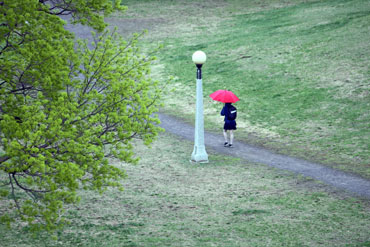
The city government of Ottawa has drafted a letter requesting the province of Ontario to strike out certain provisions of a housing bill that could impede the city’s capability to build more parks and recreational facilities.

The city government of Ottawa has drafted a letter requesting the province of Ontario to strike out certain provisions of a housing bill that could impede the city’s capability to build more parks and recreational facilities.
Bill 108 changes how municipal governments are able to collect money from developers to fund so-called “soft services” such as parks, recreation centres, and public libraries, CBC reported.
“I cannot imagine the Richcraft [Recreation Complex in Kanata] being built under this model,” planning and infrastructure general manager Steve Willis told Ottawa's planning committee on Tuesday. “I can't imagine Millennium Park [in Orléans] necessarily coming forward the way it's being built.”
According to Willis, the city would no longer be able to use development charges to fund large projects such as those he mentioned.
“I would wish to be wrong about that, but that's why we highlighted this as one of the most significant issues... because it applies to every single ward every single community throughout the city,” Willis said.
The letter, which requires an endorsement by the council and the mayor’s signature at the council meeting on Jun. 12, says that the “one-size-fits-all” solution proposed by the bill will negatively impact communities outside the Greater Toronto Area.
It said that it is “contrary to the spirit of streamlining” to require city governments to come up with new ways to raise “community benefit” funds, as there already is a functional system which uses development charges.
Another problem posed by the new system is that the new community benefit fee is based on a percentage of a land’s value. With land in the GTA much more expensive than anywhere else, this would cause a huge disparity in collections.
“So any community that doesn't have Toronto-area land values will end up with a much lower amount of money we're allowed to collect, yet it costs us the same amount of money to build an ambulance post as it does in the City of Toronto,” Willis said.